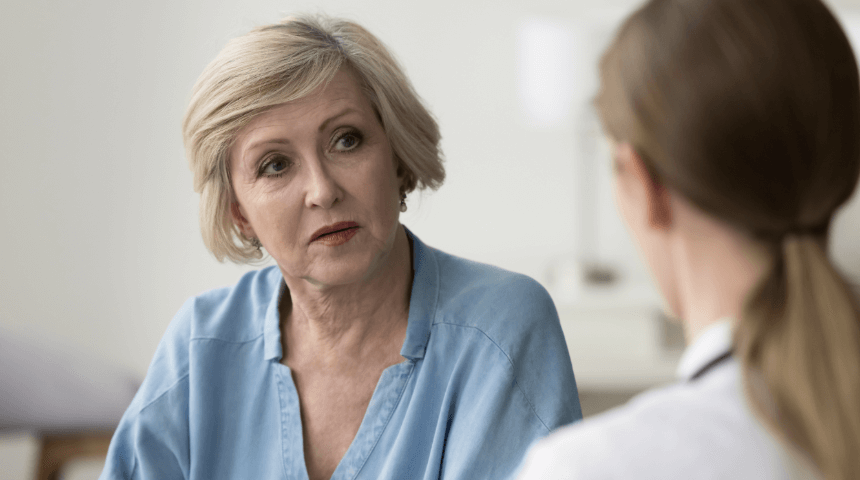While it is usually obvious when you get your first menstrual cycle, it may not be as clear when you have your last one. Menopause is a natural change that occurs when your ovaries no longer produce the hormone estrogen, your body no longer releases eggs and your menstrual period stops.
Menopause usually happens when women are between 42 and 60, with the average age being 52, but the transition leading to menopause can take several years. During that time, you may experience a variety of signs and symptoms before you actually have your last period. Understanding those signs and symptoms related to the end of your period can make the transition into menopause easier.
Perimenopause—The First Stage
As early as your mid-30s, but more often during your 40s, your body begins to produce less estrogen. Because of that decrease in estrogen, during perimenopause, you may have irregular periods, breast tenderness or worsening of premenstrual syndrome.
When you have not had a period in 12 consecutive months and your ovaries have stopped releasing eggs, you have entered menopause.
Signs and Symptoms of Menopause
Before that last period occurs, you may notice some of these changes:
- Periods are shorter and lighter, or conversely heavier or longer, or with more or less time in between
- Hot flashes and/or night sweats
- Difficulty sleeping
- Less hair on your head, but more on your face
- Vaginal dryness
- Difficulty focusing
Other symptoms include dry skin, eyes and mouth, and a sudden need to urinate.
Risks Associated with Menopause
Although menopause is natural, the loss of estrogen does put you at risk for other health conditions, such as osteoporosis, vaginal dryness, poor muscle tone, and poor skin elasticity.
Managing Menopause
But even as the so-called “change in life” can be challenging, there are steps you can take to manage inconvenient symptoms and minimize the health risks associated with menopause. Hormone replacement therapy, non-hormonal medication for hot flashes, medicines, and supplements to prevent osteoporosis, and lifestyle changes are just some of the strategies to better manage menopause.
For some women, symptoms of menopause are minor, but for others, they can be disruptive. If your symptoms are affecting your life, or if you want to find out more about reducing the risks associated with menopause, talk with your OB-GYN. Remember, menopause may be a natural part of life, but it doesn’t have to derail it.
Download a Guide to Understanding Menopause
Learn more about understanding menopause, services available, screenings you need, and important medical history to provide to your physician on your next appointment.
Get Your Guide





